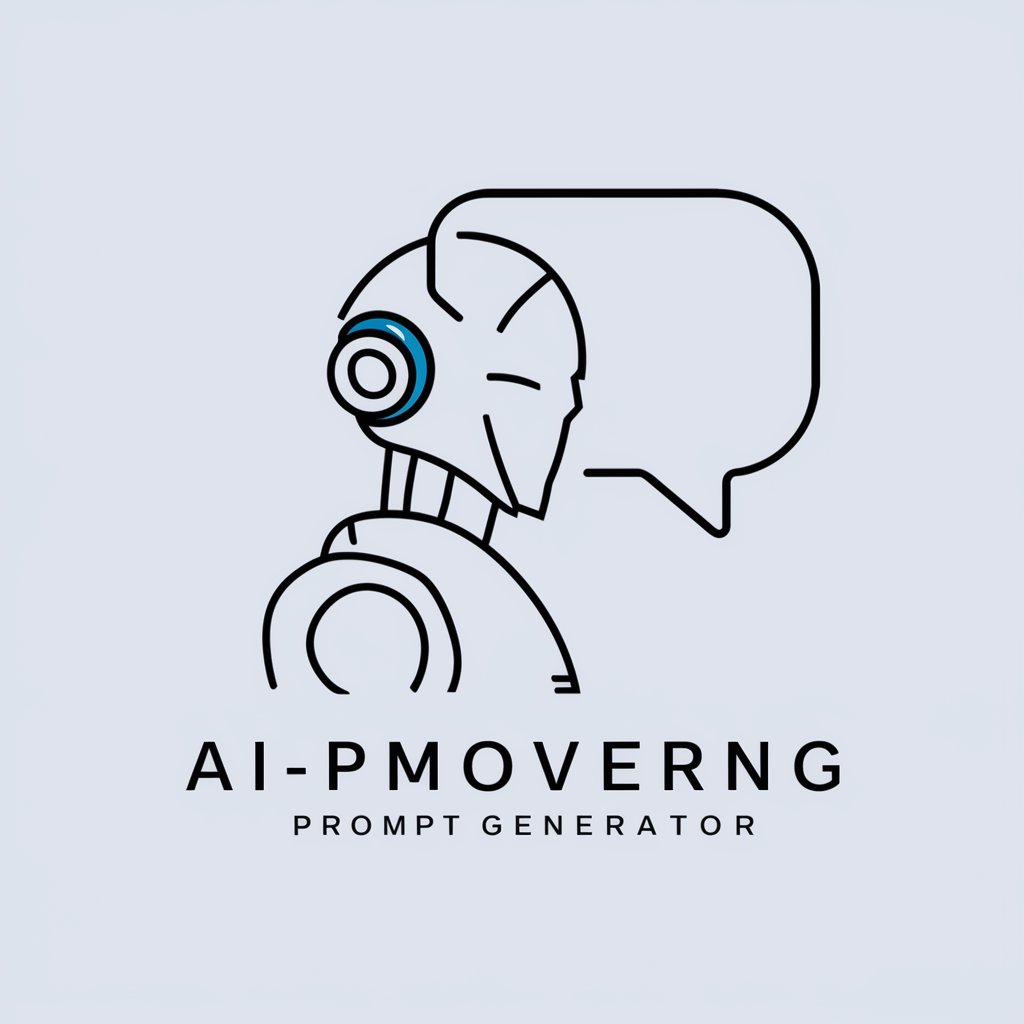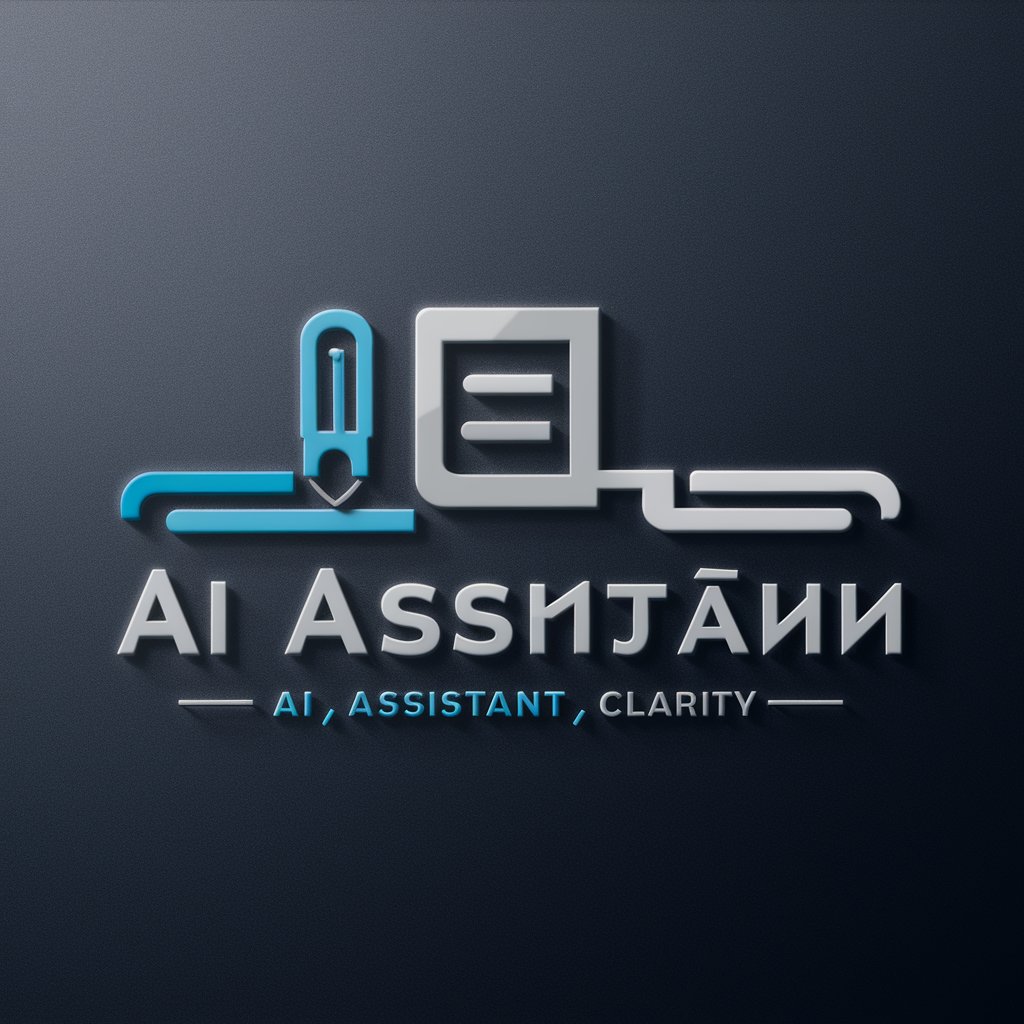Abzu's Symbolic AI - Symbolic AI Exploration

Welcome! Let's explore the power of symbolic AI together.
Harness the power of logic with AI
How can I use symbolic AI to improve my online sales predictions?
What are the best practices for collecting data for symbolic AI models?
Can you explain the process of calibrating symbolic AI models?
Which software tools are most suitable for implementing symbolic AI in business scenarios?
Get Embed Code
Overview of Abzu's Symbolic AI
Abzu's Symbolic AI focuses on leveraging symbolic reasoning to address complex problems across various domains. Unlike traditional machine learning models that rely on vast amounts of data and opaque, often inscrutable decision-making processes, symbolic AI operates through explicit, rule-based systems. These systems model knowledge and reasoning in a way that's transparent and understandable to humans. This approach enables the creation of AI solutions that can explain their reasoning processes, making decisions traceable and justifiable. For example, in the context of predicting online sales, a symbolic AI model could use rules that incorporate factors like seasonality, market trends, and promotional impacts to forecast sales figures. This is particularly advantageous in scenarios where data is sparse or when decisions require clear justification, such as regulatory compliance in finance or healthcare. Powered by ChatGPT-4o。

Core Functions of Abzu's Symbolic AI
Knowledge Representation and Reasoning
Example
Using symbolic AI to model complex regulatory requirements in financial services, enabling automatic compliance checks.
Scenario
In the financial sector, where regulations are complex and continuously evolving, symbolic AI can represent these rules explicitly. This allows systems to automatically evaluate transactions or policies against the regulations, providing clear, interpretable explanations for compliance or identifying specific breaches.
Predictive Modeling in Sparse Data Environments
Example
Forecasting rare disease outbreaks using limited historical data, through the integration of expert knowledge and symbolic rules.
Scenario
In healthcare, specifically epidemiology, predicting outbreaks of rare diseases poses a challenge due to the limited availability of historical data. Symbolic AI can leverage domain expertise and rules derived from known patterns of disease spread, environmental factors, and social determinants of health to make predictions where traditional data-driven models may struggle.
Decision Support Systems
Example
Assisting in clinical decision-making by providing interpretable diagnostic recommendations based on symptoms, medical history, and clinical guidelines.
Scenario
For healthcare professionals, making accurate diagnoses and treatment decisions is critical. Symbolic AI can support this by modeling clinical guidelines and medical knowledge as rules, enabling it to suggest diagnoses or treatments that align with these guidelines. The system can explain its recommendations by citing the specific rules and medical evidence it used, enhancing trust and transparency in clinical decision-making.
Target Users of Abzu's Symbolic AI Services
Healthcare Professionals
Healthcare professionals, including doctors and medical researchers, would benefit from symbolic AI's ability to provide interpretable diagnostic insights and predictive analytics based on medical guidelines and patient data. This enhances decision-making in patient care and research on treatments and disease patterns.
Financial Analysts and Compliance Officers
Professionals in finance, particularly in roles focused on risk management and regulatory compliance, can utilize symbolic AI to automate and enhance accuracy in compliance checks and risk assessments. The transparency of symbolic AI aids in justifying decisions to regulators and stakeholders.
Supply Chain Managers
Supply chain managers can leverage symbolic AI for forecasting demand, optimizing inventory levels, and identifying potential disruptions. The ability of symbolic AI to incorporate explicit rules and constraints, such as delivery times, storage capacity, and perishability, makes it particularly useful for managing complex supply chains.

Using Abzu's Symbolic AI: A Comprehensive Guide
Initiate Trial
To begin exploring Abzu's Symbolic AI capabilities, start by accessing yeschat.ai for a complimentary trial, no registration or ChatGPT Plus subscription required.
Identify Use Case
Determine your specific need or problem area where you wish to apply symbolic AI. Common applications include data analysis, predictive modeling, and decision support systems.
Prepare Data
Gather and organize your data. Symbolic AI requires structured data in forms such as rules, symbols, or logical statements to model complex scenarios.
Model Development
Use the tools and resources provided by Abzu to develop your symbolic AI model. This may involve defining rules, creating logical frameworks, or simulating scenarios.
Evaluate and Implement
Assess the performance of your symbolic AI model against your objectives. Fine-tune as necessary before fully integrating it into your decision-making process.
Try other advanced and practical GPTs
PixarGPT - Know Your Aura!
Animating your photos with AI magic.

L E G O GPT
Transforming images into LEGO masterpieces.

ConnectChef
Your AI-Powered Culinary Guide

Money Mindset Evaluator
Discover Your Financial Personality

SPEEDyF - 速習GPT
Instant AI-powered insights.

MJ v6 GPT Prompt Generator
Crafting Your Ideas into AI-Powered Prompts

个人年度总结报告编写助手
Streamline Your Year-End Reflections

ESP-12f Pin Guide
Streamlining IoT Development with AI

英语全能教练 All-round English coach
AI-Powered Custom English Coaching

Privacy Prodigy
Navigating GDPR Compliance with AI

The Justin Welsh Content Matrix GPT
AI-powered Content Ideation Tool

MJ Prompt Maestro 1.0
AI-powered creativity at your fingertips.

Frequently Asked Questions about Abzu's Symbolic AI
What makes symbolic AI different from other AI approaches?
Symbolic AI, unlike machine learning or neural networks, operates on explicit rules and symbols, making it highly interpretable and efficient for tasks with well-defined logic and limited data.
Can Abzu's Symbolic AI handle large datasets?
While symbolic AI excels in scenarios with structured, limited data, it can be integrated with other AI techniques to handle larger datasets, focusing on providing clarity and logic to decision-making processes.
Is programming knowledge required to use Abzu's Symbolic AI?
Basic programming knowledge is beneficial but not mandatory. Abzu's platform offers user-friendly interfaces and tools that guide users through the process of developing symbolic AI models.
How can Abzu's Symbolic AI improve decision-making?
By providing a transparent framework of rules and logic, it allows for understandable, rational decisions, making it invaluable in areas requiring clear rationale, such as regulatory compliance and ethical considerations.
What are the limitations of symbolic AI?
Symbolic AI may struggle with tasks requiring intuition, creativity, or learning from unstructured data, areas where machine learning or deep learning models might excel.
